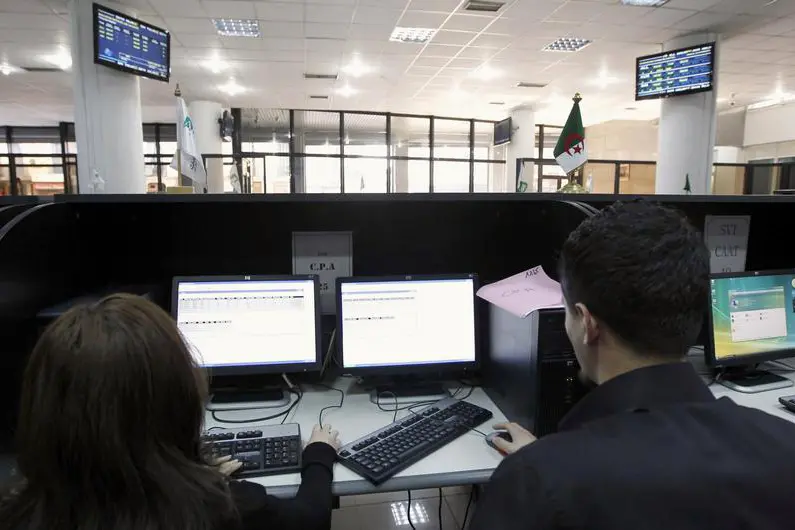PHOTO
* Islamic finance among steps to draw money from informal market
* OPEC member under pressure to reform after oil price drop
* Financial sector also looking to expand use of e-payments
By Hamid Ould Ahmed
ALGIERS, June 14 (Reuters) - Algeria is preparing to launch Islamic financial services as the OPEC member seeks new ways to raise money after a sharp fall in energy earnings, a senior financial official told Reuters in an interview.
Boualem Djebbar, head of the state-run Banks and Financial Institutions Association, said plans to offer Islamic finance products were part of wider reforms aimed at modernising the underdeveloped banking sector.
Algeria's outdated financial system has been a barrier to investment as the government seeks to diversify its economy away from oil and gas, which account for 60 percent of the state budget and 95 percent of the country's revenue from exports.
The plan to launch financial services that comply with Islamic law had not been previously announced. Djebbar did not give a time frame or details for the plan. But he stressed that a legal framework would need to be finalised before giving the green light to state banks.
"We are working on that," Djebbar said. "A commission has been set up to speed up the process".
The North African state has been slowly emerging from decades of state-led centralised economic control after independence from France in 1962. The oil price drop has revived debate over how quickly to try to open up the economy.
The Islamic finance plan comes as Algeria tentatively seeks to broaden its sources of funding.
In April, it launched its first domestic debt issue in years, intended to fund investment across the economy. At the start of the year, the government offered a fiscal amnesty under which Algerians have until December 2016 to deposit undeclared income and pay a 7 percent fee.
However, some analysts expect the debt issue to have limited uptake, and observers say the amnesty has failed to attract much money from the parallel market.
Mohamed Boudjelal, an Islamic finance expert and university professor in Algiers, said introducing sharia-compliant systems would help, since "part of the population refuses to deal with the conventional banking system."
"Opting for Islamic finance is strongly recommended during this period of crisis," he said.
President Abdelaziz Bouteflika, who has promised deep reforms in the financial sector, replaced the finance minister in a cabinet reshuffle on Saturday and created a new position of junior minister for the digital economy and modernisation of financial systems.
The International Monetary Fund and World Bank have repeatedly called for reforms for Algeria's archaic banking system to help attract much-needed foreign investment.
Djebbar said developing the banking system had become inevitable, with a particular focus on electronic payment systems, which are still little used in Algeria.
"E-payment services will be available throughout the country," he said. "Electronic payment will really improve our business environment." (Editing by Aidan Lewis and Hugh Lawson)
© Reuters 2016





















